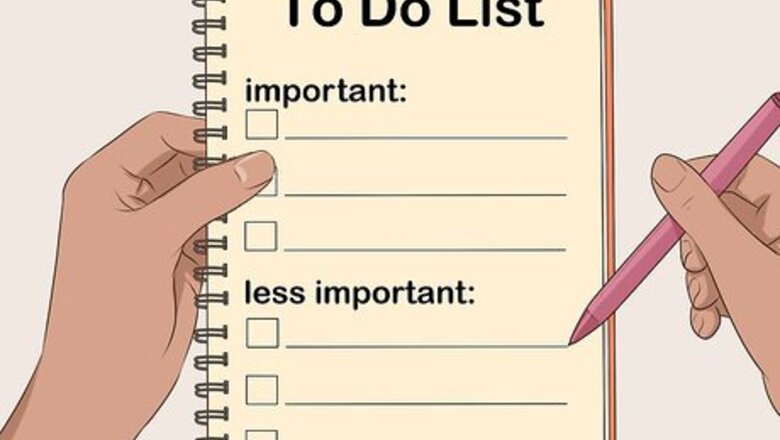
views
Getting Organized
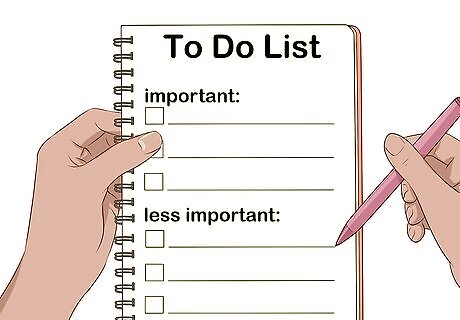
Make a checklist. Creating a work checklist or to-do list can help you stay on track at work. Limit how many items are on your to-do list so you don’t stress yourself out. Choose the three most important tasks you need to get done. These are big, important, and crucial tasks that must get done before you do anything else. Fill the rest of your checklist with minor tasks to accomplish if you finish your big tasks. Write your checklist the night before and focus on that coming day only. Be specific in your checklist, break down tasks into smaller chunks, and include time estimates.
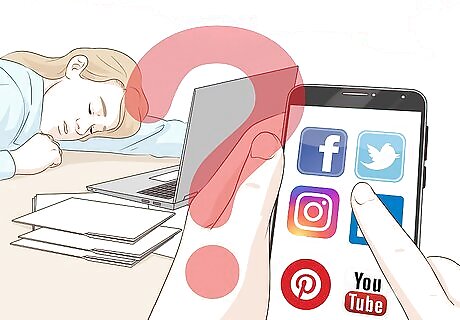
Track where you waste time. Look at your patterns on how you spend time and where you waste it. Do you find yourself clicking on Facebook a little too often? Or having too many chats with your coworkers in the break room? Figure out where you waste time so you can stop and be more effective at work.
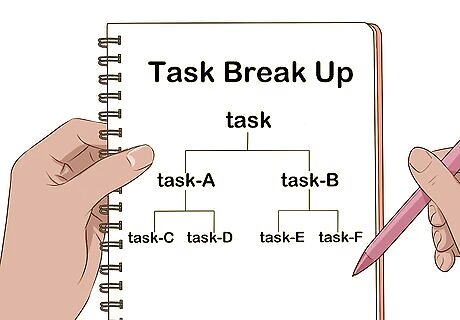
Break up your projects into smaller tasks. It can be hard to feel accomplished if you spent the entire day on one thing, and still have not finished it. Break up big projects into small successes to help you feel motivated and be more effective at work. If you worked on creating a budget for a company all day, think of it as all the small steps you did to create the budget. Maybe you contacted business owners, created spreadsheets, and calculated where money was being wasted, so you actually accomplished three tasks.
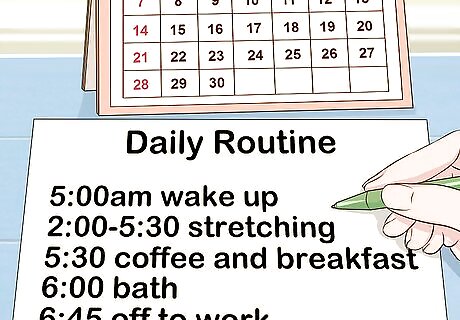
Create a daily routine. Tell your mind and body that it is time to work by having a routine system. This might mean that every morning you start off the same way (such as you doing stretches, drinking coffee, and turning on a pump up playlist). Have designated times throughout the day where you are allowed to check your email, so you don’t waste time impulsively checking it all day.
Staying Focused at Work

Check in with yourself. When you get to work, spend five minutes with your to-do list thinking about your day. Think about how you are going to accomplish your tasks for the day. Every hour force yourself to refocus. Look at how you spent the past hour and ask yourself if it was productive. Commit to making the next hour productive. When the day ends, ask yourself how your day went. Was it productive? How can you change to make tomorrow more successful?

Know how to do your job well. If you know how to do your job like the back of your hand, then it will require less energy. Knowing what you are doing will allow you to excel at your work. Although you should still challenge yourself to new things and continue to outdo yourself to build your skills, contribute to your company, and to keep yourself from getting bored. Seek further training to help you master your job if you can’t get things done because you don’t have the right skills or knowledge. EXPERT TIP Elizabeth Douglas Elizabeth Douglas CEO of wikiHow Elizabeth Douglas is the CEO of wikiHow. Elizabeth has over 15 years of experience working and managing teams in the tech industry. She has held roles in multiple areas, including computer engineering, user experience, and product management. She received her BS in Computer Science and her Master of Business Administration (MBA) from Stanford University. Elizabeth Douglas Elizabeth Douglas CEO of wikiHow Elizabeth Douglas, CEO of wikiHow, offers three tips for doing your job better: 1. Make sure you’re delivering on what your manager expects of you. 2. Communicate well about your projects. 3. Try to position yourself to help the company grow and get better.

Stay motivated to avoid procrastination. A big reason for procrastination is because you are dreading to do something. Force yourself to do things in bursts. Force yourself to start a chunk of something even if it is just for five minutes, then stop if you need to. Once you start making progress on something, you will be more motivated to keep going and working on it longer and longer until it is finished. Turn your phone off and clear your desk to avoid distractions that encourage procrastination. Do challenging tasks before lunch when you are the most motivated.

Worry about what you can control. Focus your time and energy on what you can control. Don’t worry about and stress about what is beyond your control. If you start getting worried about what a coworker is doing or stressing about another department, it will just waste your own time. You will feel more empowered and be more effective at work if you just focus on what is in your control.
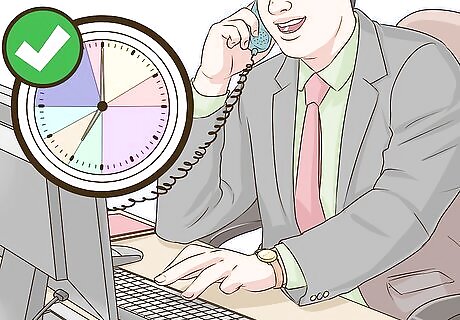
Work efficiently. In order to be an effective worker, you have to be an efficient worker. Stop multi-tasking. Focus on one task at a time. If you try to do ten things at once, you won’t complete anything.
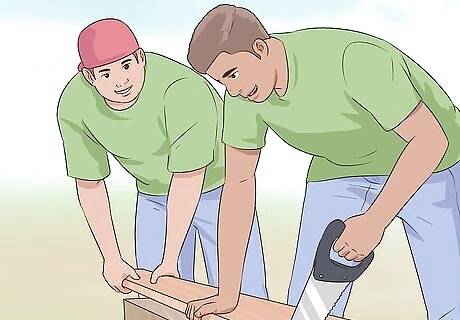
Collaborate with your coworkers. Work in a team to accomplish tasks faster and to bring new ideas to projects. Working with others and asking for help when you need it will help you be a more effective worker.
Taking Care of Yourself

Take breaks. You can’t be effective at work if you don’t allow yourself time to take a break. Allow yourself moments to break from work every couple of hours. Eat a snack, go on a walk, or meditate to recharge your brain to be more effective.
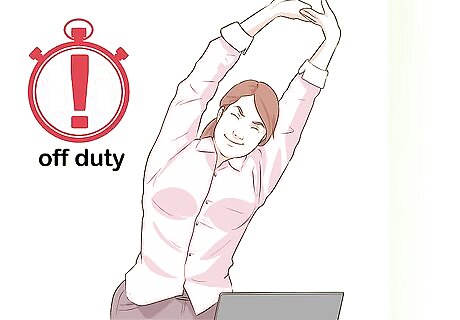
Stop working at a set time. If you force yourself to stop working when work is over, you will be more effective when you are actually at work. Set a firm cut off time for when work is over and stick to it. Plan something interesting after work to encourage yourself to stop working. Have a routine after work to wind yourself down, such as taking a walk or keeping a journal.
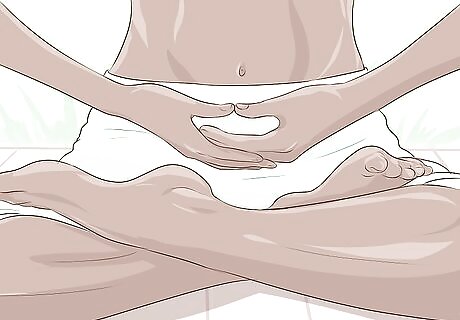
Relieve stress. The key to staying stress free is to feel in control. Keep your days planned to help you feel in control. Make sure you have a clear idea of what is expected from you at work to help avoid stress. Do stress reducing activities after work (such as reading, listening to music, doing yoga, or doing a creative hobby).










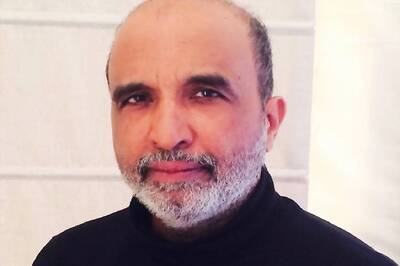



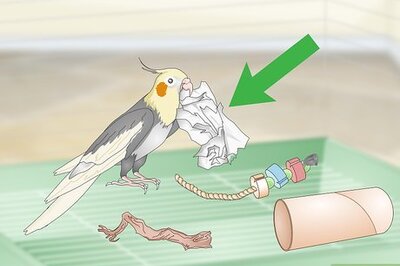





Comments
0 comment